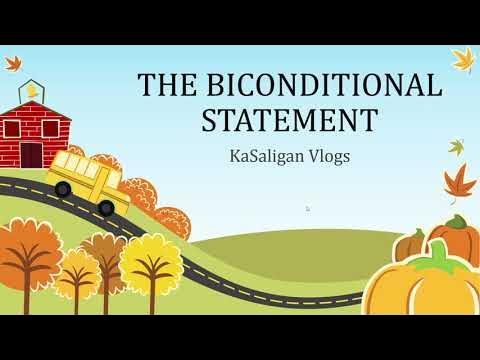Ngaji Filsafat 04 : Kebenaran Part #1
Summary
TLDRThe speaker discusses various aspects of truth, focusing on logic, intellectualism, and ethics. They emphasize that logic leads to the inevitability of death and rationally argue that those who have undergone extensive education should be considered intellectuals. Despite many not fitting the elite or intellectual image, the speaker believes that years of formal schooling should logically make someone knowledgeable and elite. The third aspect introduced is the importance of ethics, linking moral values to truth.
Takeaways
- 😀 Death is a universal truth, and logically, everyone will face it at some point.
- 😀 The speaker argues that intellectuals are often seen as elites due to their long years of schooling.
- 😀 Education is viewed as a significant factor in being considered intellectual, as it involves years of study from elementary through higher education.
- 😀 The idea of being 'elite' or 'intellectual' is tied to the length of schooling and the accumulation of knowledge over time.
- 😀 Some people with long education years may not necessarily be truly 'elite' or 'intellectual' in a practical sense.
- 😀 The speaker emphasizes that being intellectual isn't only about having education but also about applying knowledge effectively.
- 😀 A distinction is made between factual and logical definitions of 'intellectual,' suggesting that logic often supports the idea of elites having extensive education.
- 😀 There's a critique of the assumption that just because someone has the longest schooling, they should automatically be considered elite or intellectual.
- 😀 The ethical aspect of knowledge and intellect is discussed, but it isn't fully elaborated in the given part of the script.
- 😀 The speaker stresses that the true value of education is not just in the years spent learning, but in how effectively that knowledge is utilized and applied.
Q & A
What is the speaker's definition of truth in the script?
-The speaker discusses various aspects of truth, including the logical truth that every person will die. They also reference truth in terms of intellect, education, and ethics.
How does the speaker define an intellectual person?
-The speaker defines an intellectual as someone who has gone through many years of schooling (from primary school to university) and has accumulated knowledge, making them elite in terms of intellect.
Why does the speaker believe education makes someone an intellectual?
-The speaker believes that since education takes many years and involves acquiring knowledge, someone who has spent so much time in school should logically be considered an intellectual.
Does the speaker think that all educated people are intellectuals? Why or why not?
-No, the speaker acknowledges that not everyone who is educated is truly intellectual. They argue that while education should theoretically lead to intellect, it doesn’t always result in practical knowledge or intellectual capacity.
What example does the speaker give to illustrate the idea of logical truth?
-The speaker mentions that 'every human will die' as a logical truth, emphasizing that this is an undeniable fact.
How does the speaker relate the concept of elitism to education?
-The speaker connects elitism with education by suggesting that those who have spent the most time in schooling (from SD to university) are more likely to become elite intellectually due to the accumulation of knowledge.
What is the speaker’s stance on the relationship between intellect and formal education?
-The speaker believes that intellect should logically follow from formal education, as long years of schooling should ideally lead to intellectual development. However, they recognize that this is not always the case in practice.
What does the speaker mean by 'truth of ethics'?
-The speaker briefly mentions the 'truth of ethics,' but does not go into detail. This could refer to moral truths or principles related to human behavior, though it remains unexplained in this part of the transcript.
What role does rationality play in the speaker’s argument about education and intellect?
-Rationality is central to the speaker's argument that education should logically lead to intellectual development. They suggest that the rational expectation is that those who spend the most time in school should gain the most knowledge and therefore become intellectuals.
How does the speaker view the relationship between factual knowledge and being 'elite'?
-The speaker seems to differentiate between being elite in practice and being elite by virtue of education. While education should theoretically make one elite, the speaker acknowledges that many educated people may not actually be elite or intellectually advanced.
Outlines

Dieser Bereich ist nur für Premium-Benutzer verfügbar. Bitte führen Sie ein Upgrade durch, um auf diesen Abschnitt zuzugreifen.
Upgrade durchführenMindmap

Dieser Bereich ist nur für Premium-Benutzer verfügbar. Bitte führen Sie ein Upgrade durch, um auf diesen Abschnitt zuzugreifen.
Upgrade durchführenKeywords

Dieser Bereich ist nur für Premium-Benutzer verfügbar. Bitte führen Sie ein Upgrade durch, um auf diesen Abschnitt zuzugreifen.
Upgrade durchführenHighlights

Dieser Bereich ist nur für Premium-Benutzer verfügbar. Bitte führen Sie ein Upgrade durch, um auf diesen Abschnitt zuzugreifen.
Upgrade durchführenTranscripts

Dieser Bereich ist nur für Premium-Benutzer verfügbar. Bitte führen Sie ein Upgrade durch, um auf diesen Abschnitt zuzugreifen.
Upgrade durchführenWeitere ähnliche Videos ansehen
5.0 / 5 (0 votes)






